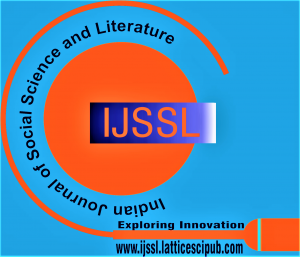![]()
Role of Modern Education and Socio-Cultural Movements in India’s Independence
Manish Singh
Dr. Manish Singh, Department of Independent Researcher, 25- Ramkrishna Path, North S. K. Puri, Patna (Bihar), India.
Manuscript received on 06 July 2024 | Revised Manuscript received on 10 December 2024 | Manuscript Accepted on 15 December 2024 | Manuscript published on 30 December 2024 | PP: 32-36 | Volume-4 Issue-2, December 2024 | Retrieval Number: 100.1/ijssl.E113703050924 | DOI: 10.54105/ijssl.E1137.04021224
Open Access | Ethics and Policies | Cite | Zenodo | OJS | Indexing and Abstracting
© The Authors. Published by Lattice Science Publication (LSP). This is an open-access article under the CC-BY-NC-ND license (http://creativecommons.org/licenses/by-nc-nd/4.0/)
Abstract: At the outset, it may be stated explicitly that this paper attempts to argue that the spread of modern education and consequent socio-cultural reforms, among other factors, indirectly played a key role in India’s struggle for independence. The role of other such factors, however, is not underplayed in the freedom movement. The British were highly zealous about spreading their education and culture outside. Statesmen like Lord Macaulay and Sir Cecil Rhodes were of the view that the English culture was the best and the most liberal in the world. If India, South Africa, and later the world as a whole were culturally “Anglicised” through the British pattern of education, it would pave the way for the social and political unification of the world. The idea of “Anglicizing” the world and thereby building up the empire and forging political and social unity of peoples at the global level under the leadership of the British, is apparent in the will of Sir Cecil Rhodes. He had desired “the extension of British rule throughout the world, the occupation by British settlers of the entire Continent of Africa, the Valley of the Euphrates … the whole of South Africa … the ultimate recovery of the United States of America as an integral part of the British Empire, the inauguration of a system of Colonial representation in the Imperial Parliament, which may tend to weld together the disjointed members of the Empire, and finally, the foundation of so great a Power as to render hereafter wars impossible and promote the best interests of humanity [1].” Thus, the belief in Britain’s role as the Messiah to civilise and unify the world by disseminating British culture was one of the essential reasons for the introduction of modern education in India.
Keywords: Anglicized, British, Education, Socio-Cultural.
Scope of the Article: History
